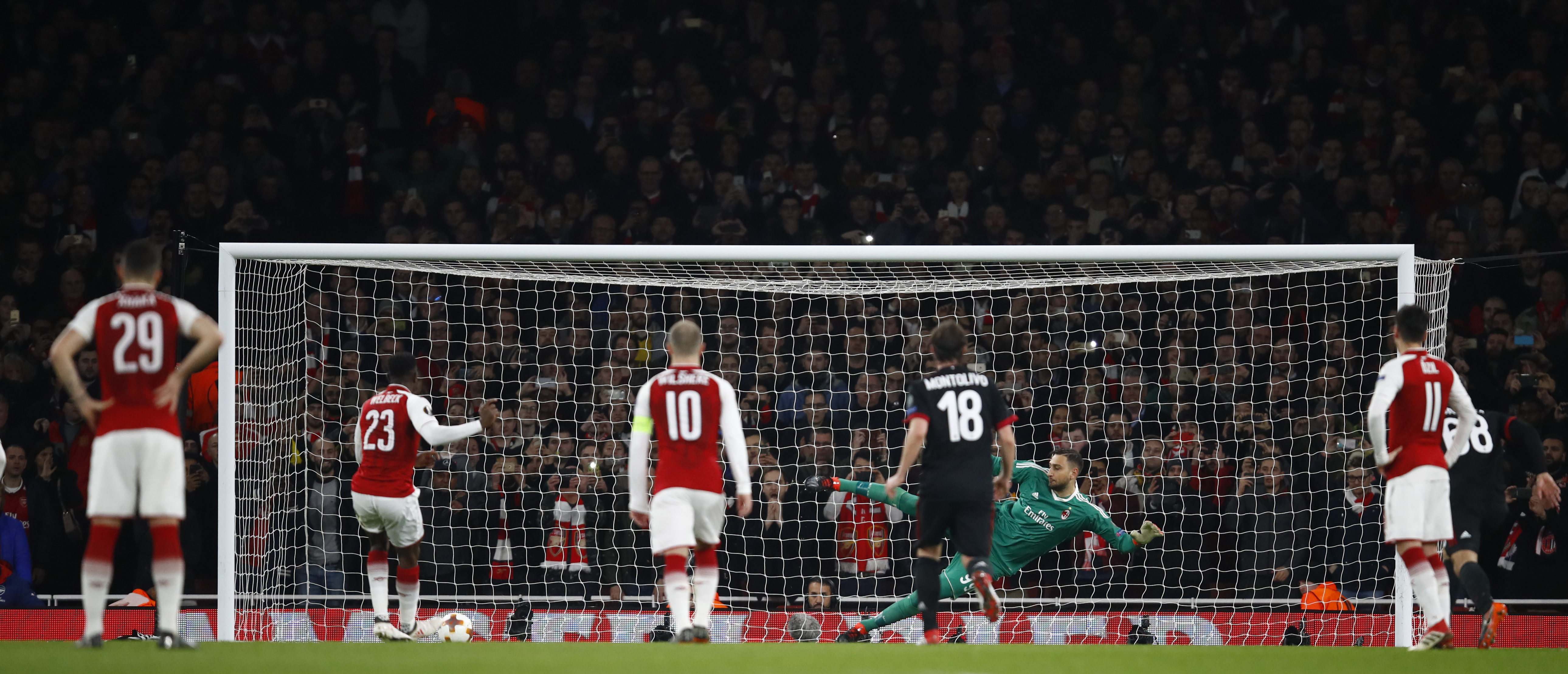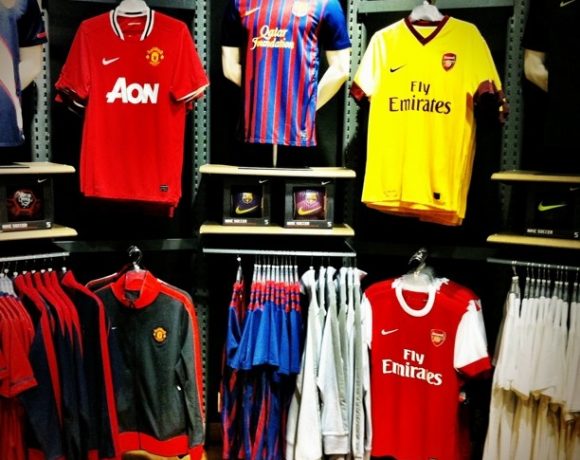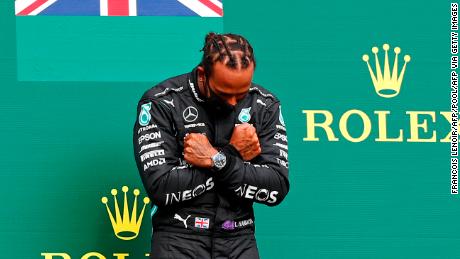Soccer Player Earns His Team A Penalty After Ghost Tackle


Arsenal forward Danny Welbeck had a few options when he received a pass into AC Milan’s penalty area in the 38th minute of Thursday night’s Europa League Round of 16 match.
Close to the goal-line, the English striker could’ve placed a cross into a teammate or put a shot on goal, although the angle was small with Milan’s 6-foot-5-inch goalkeeper and fast-approaching left-back to intercept. Perhaps the better choice would’ve been to take the ball to his right and recycle it so his team could maintain possession in pursuit of another chance on goal.
Instead he took the unfortunately conventional route – stiffen the legs and fall to ground.
This won Arsenal a penalty.
Not a booking for Welbeck but a penalty.
A penalty. For this. FFS. #ARSMILpic.twitter.com/DtTpdmIsAp
— Chris (@Chris_L48) March 15, 2018
According to the laws of the Game, attempting to deceive the referee quantifies “unsporting behavior” and is therefore punishable by a caution. However, the referee pointed to the penalty spot without hesitation, indicating the penalty was on Milan, and the assistant referee, who stood a few feet away with the clearest view of the incident in Arsenal’s 60,000-seater Emirates Stadium, made no indication of disagreement.
Milan players crowded the referee pleading no foul, but there was no use. Like most professional soccer leagues, the Europa League has no live review system for referees to base their judgements off. Blatantly incorrect or not, the referee’s decision is final, unlike the modern practice in other popular sports that encourage match officials to delay their calls in pursuit of an accurate assessment of facts.
Welbeck subsequently crushed the penalty kick, bringing Arsenal level 1-1 with Milan.
Many have went on social media and are calling Welbeck’s fall “disgusting.” Milan’s manager, Gennaro Gattuso, is surprisingly not a part of the many.
Gattuso on Welbeck: “He’s a striker. He has to do what he does. But we can’t use that as a reference for the entire English football. There is a great deal of fair play in England. There was a lot at stake. When I was a player, I tried to take advantage of individual situations.”
— James Olley (@JamesOlley) March 15, 2018
“He’s a striker. He has to do what he does,” Gattuso said. “When I was a player, I tried to take advantage of individual situations.”
Contentious decisions such as this are the basis of proposals for change. However, FIFA’s long-standing view that unpredictable officiating is a part of the game has slowed any progress.
Initially, FIFA used multiple arguments to actively reject technological innovation including the inevitable disparity between top and lower leagues, the price of comprehensive implementation and, perhaps the most amusing, the intrinsically human aspect of decision making.
“No matter which technology is applied, at the end of the day a decision will have to be taken by a human being,” FIFA said in a March 2010 statement. “It is often the case that, even after a slow-motion replay, ten different experts will have ten different opinions on what the decision should have been.”
The conversation seemed done and dusted from there, but it reignited after the World Cup that same year when referees made highly controversial decisions in disallowing Frank Lampard’s obvious goal against Germany and allowing Carlos Tevez’ offside goal against Mexico, both of which played a role in England’s and Mexico’s respective elimination in the first round of the knockout stage.
Sepp Blatter, FIFA’s then president, contradicted FIFA’s original statement in an apology to the English and Mexican soccer associations during that World Cup, saying innovations such as goal-line technology would be considered in the future.
Despite the assuring words, the International Football Association Board, the body that determines the rules of professional soccer, only began permitting leagues to implement goal-line technology for referees in 2012 – two years later.
Another two years later, goal-line technology made its first debut at a major tournament in at the 2014 World Cup, but Video Assistant Referees, the one measure that would’ve given Milan a chance at successfully contesting Thursday night’s penalty call, only saw its first testing in 2016.
The Europa League is not one of the few top leagues to experiment with VAR this year, however, and therefore can’t bear any fruits of such an update crucial to consistent officiating.
There is hope for the future, though, now that IFAB approved the widespread institution of VAR “to increase integrity and fairness in the game,” at their most recent meeting on March 3, 2018.
Given FIFA’s traditionally unhurried approach to modernization, asking when VAR will be widespread and effective is a valid question.
Milan fans are likely asking why VAR couldn’t be used last night following their elimination from the Europa League. Arsenal went on to win the match 3-1, advancing to the quarter-finals on 5-1 aggregate over the two legs of the Round of 16. They will face CSKA Moscow in the semi-finals with the first leg scheduled on April 5.
[contf] [contfnew] 
The daily caller
[contfnewc] [contfnewc]

















